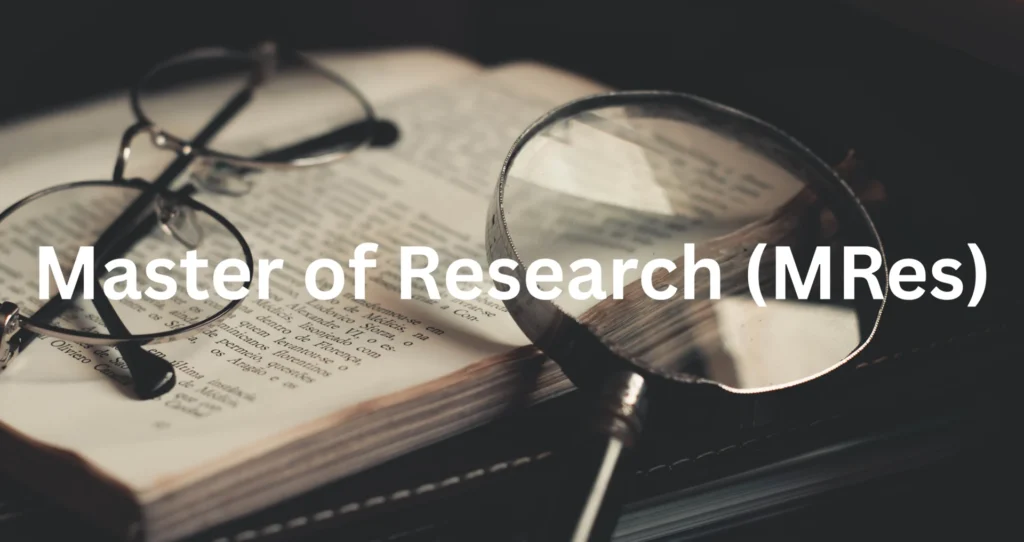Are you a research-passionate Bangladeshi student seeking to advance your academic journey? The Master of Research (MRes) degree in the UK is a great way to develop advanced research skills and get ready for more research-intensive studies or careers.
Table of Contents
ToggleWhat is an MRes Degree?
A Master of Research (MRes) is a postgraduate degree that prioritizes independent research over coursework. In the UK, most MRes degrees are designed so that 60–70% of the course focuses on a single major research project, which concludes with a 35,000–40,000-word thesis.
It’s perfect for students planning to:
- Continue to a Ph.D.
- Enter research-intensive careers in academia, government, non-governmental organizations (NGOs), or the private sector
Why Choose an MRes degree in the UK?
Studying for an MRes in the UK has many advantages:
- The top-ranked institutions, including UCL, Edinburgh, and Manchester, are at the forefront.
- Prepare for a Ph.D. or R&D career with hands-on research training.
- A Graduate Route Visa: Stay and work for up to two years after graduation.
- A multicultural academic environment
- Flexible research specializations across disciplines
Benefits of Studying MRes degree in the UK
- Advanced research methods and critical thinking are to be learned.
- Personalized supervision from expert faculty is available.
- This program provides a direct path to PhD admissions.
- There will be opportunities to engage with academic publishing and conferences.
- It is a highly respected qualification in global job markets.
MRes vs. MA, MSc, MPhil: Key Differences
MRes vs. MSc/MA
- An MRes degree provides more research exposure and less classroom learning than an MSc or MA.
- It is ideal for students who want to develop their academic writing, research proposal, and data analysis skills.
- MSc/MA programs are better suited to students who prefer lectures, coursework, and shorter final projects.
MRes vs. MPhil
- The MRes is usually one year long and includes structured research skills modules and a substantial dissertation.
- The MPhil is longer, up to two years, and much closer in structure to a PhD, though without the same level of commitment.
- The MRes is often considered a stepping stone to a Ph.D., while the MPhil can be terminal or transitional.
Module of MRes Degree in the UK
Although specifics vary by university, a standard MRes course usually includes the following:
Research Methods and Statistics
Literature Review and Academic Writing.
Ethics in Research
Proposal Development
Major Independent Research Project
Optional Taught Modules relevant to your field
Top UK Universities Offering MRes Degrees
Some of the best UK universities for MRes programs include:
University College London (UCL)
University of Manchester
University of Edinburgh
University of Southampton
University of York
University of Glasgow
London South Bank University
University of Hertfordshire
University of Essex
University of Gloucestershire
University of Wolverhampton
Birkbeck, University of London
University of Central Lancashire
These institutions offer MRes programs across disciplines like science, health, engineering, social sciences, and business.
Popular MRes Degrees in the UK
Some in-demand MRes courses among international students include:
MRes in Biomedical Science
MRes in Social Anthropology
MRes in Engineering and Technology
MRes in Environmental Science
MRes in Management or Business Research
MRes in psychology
MRes in clinical research
MRes in data science
MRes in public health
MRes in international relations
Entry Requirements for MRes Degree in the UK
To apply for an MRes, Bangladeshi students typically need:
A recognized Bachelor’s degree (minimum 2:1 or CGPA equivalent)
IELTS 6.5 (no band below 6.0)
Research Proposal aligned with faculty interests
Two Academic References
Statement of Purpose (SOP)
Note: Some universities may also require an interview or writing sample.
Cost of Studying MRes in the UK from Bangladesh
Here’s an estimate of tuition fees for Bangladeshi students:
| University Type | Tuition Fees per Year |
|---|---|
| Top-Ranked (UCL, Edinburgh, etc.) | £18,000 – £25,000 |
| Mid-Tier/Public Universities | £11,000 – £17,000 |
Additional Costs:
Visa: £490
Health Surcharge: £776/year
Living Expenses (outside London): £10,000–£12,000/year
Career Opportunities After MRes Degree
After completing your MRes in the UK, you can pursue roles such as:
Research Associate or Assistant
Lecturer or Academic Staff (after PhD)
R&D roles in Tech, Pharma, or Engineering
Data Analyst / Research Analyst
NGO/Policy Research Consultant
PhD Admission (with funding opportunities)
With the UK Graduate Route visa, you can stay back for two years after completing your degree to work or look for jobs.
Pursuing an MRes degree in the UK is a strategic move for Bangladeshi students interested in research, academia, or specialized fields. The UK remains a top destination for aspiring researchers with world-class universities, post-study work options, and strong career outcomes.
Need Help Applying?
STS Global Education provides full support to Bangladeshi students aiming to study MRes in the UK.
Contact us today to start your journey toward a world-class research degree!




